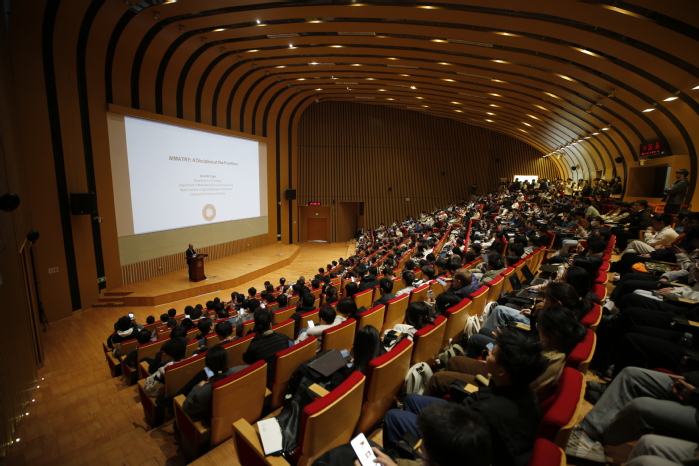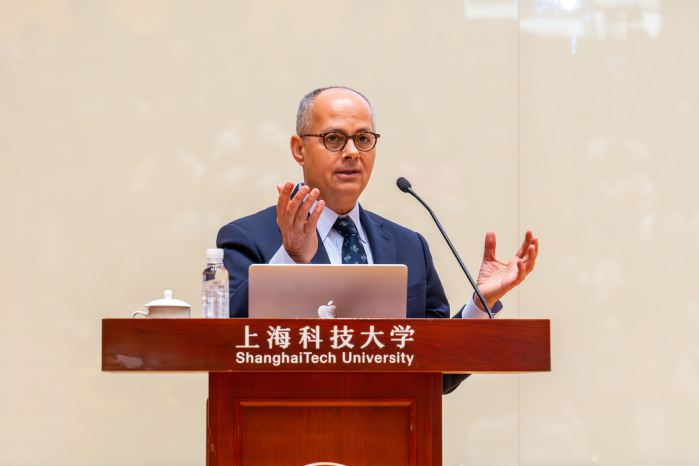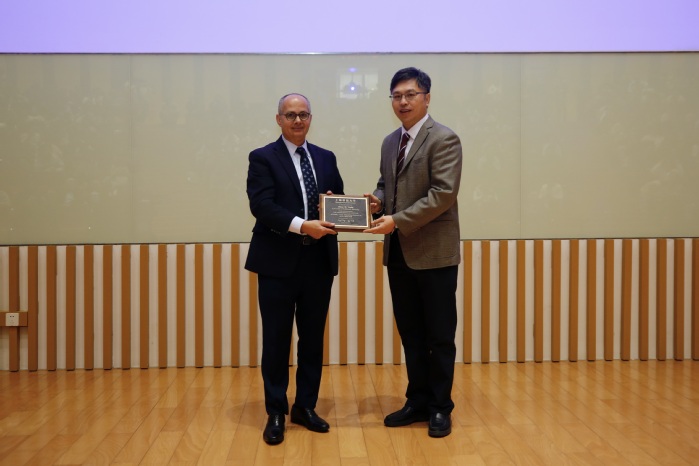From capturing water from air and separating CO₂ from industrial waste gases to achieving higher-efficiency catalysis and precision drug delivery, emerging porous materials such as metal-organic frameworks (MOFs) and covalent organic frameworks (COFs) are tackling global challenges in unprecedented ways. Yet the structural possibilities offered by reticular chemistry are nearly infinite—how to rapidly identify target materials from this vast pool represents both an enormous opportunity and a formidable challenge for scientists.
On the afternoon of November 21, Professor Omar Yaghi—the 2025 Nobel Laureate in Chemistry, member of the U.S. National Academy of Sciences, and James and Neeltje Tretter Chair Professor of Chemistry at the University of California, Berkeley—visited ShanghaiTech and delivered an inspiring talk as one of the ShanghaiTech Lecture series. His talk, titled “AIMATRY: A New Paradigm for Materials Discovery Combining Reticular Chemistry and Artificial Intelligence,” focused on AIMATRY, an emerging and highly interdisciplinary research direction representing AI-driven materials science. The event, hosted by Liu Zhi, vice provost and director of the Center for Transformative Science, attracted more than 400 faculty members and students from both within and beyond campus, filling the auditorium to capacity.

Professor Yaghi has deep ties with ShanghaiTech that date back to as early as 2015, and he has visited the university multiple times for academic exchanges. Before the lecture began, Liu Zhi briefly recounted the past exchange stories and expressed gratitude for Professor Yaghi’s valuable contributions to ShanghaiTech’s development.
During the lecture, Professor Yaghi began by recounting his unusual academic journey—born into a Palestinian refugee family in Amman, Jordan, spending his childhood between a butcher shop and school, yet never losing his passion for science. From community college to a Harvard postdoctoral fellowship, from a fascination with crystals to pioneering MOFs and COFs, he has always believed that “science begins with doubt and is completed through perseverance” and regards science as “the practice of optimism.” His life story itself is a vivid embodiment of self-directed education and resilient exploration.

Professor Yaghi systematically reviewed the evolution of MOFs and highlighted his team’s work in COFs, molecular weaving, and multivariate reticular structures. He showcased transformative applications of MOFs and COFs in water cleaning, air purification, carbon capture, and other critical areas. In terms of AIMATRY, he explained that its core lies in using AI to design new materials, achieving precise correlations between desired properties and specific chemical structures. Thanks to their structural diversity and programmability, multivariate MOFs and COFs can serve as ideal targets for putting AIMATRY into practice and accelerating materials innovation.
Throughout the lecture, Professor Yaghi not only presented cutting-edge science but also conveyed the spirit of scientific pursuit. With his unique journey—from a refugee’s son to Nobel laureate—he profoundly illustrated the truism that “science is the practice of optimism.” During the Q&A session, the audienc raised questions on topics spanning the current frontiers in MOFs, COFs, and AI.
In conclusion of the lecture, President Feng Donglai presented Professor Yaghi with the official certificate of the ShanghaiTech Lecture Series on behalf of the university.


